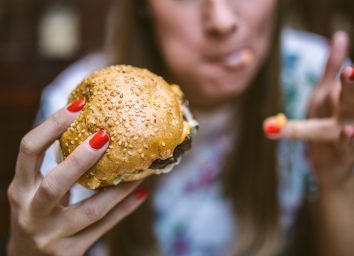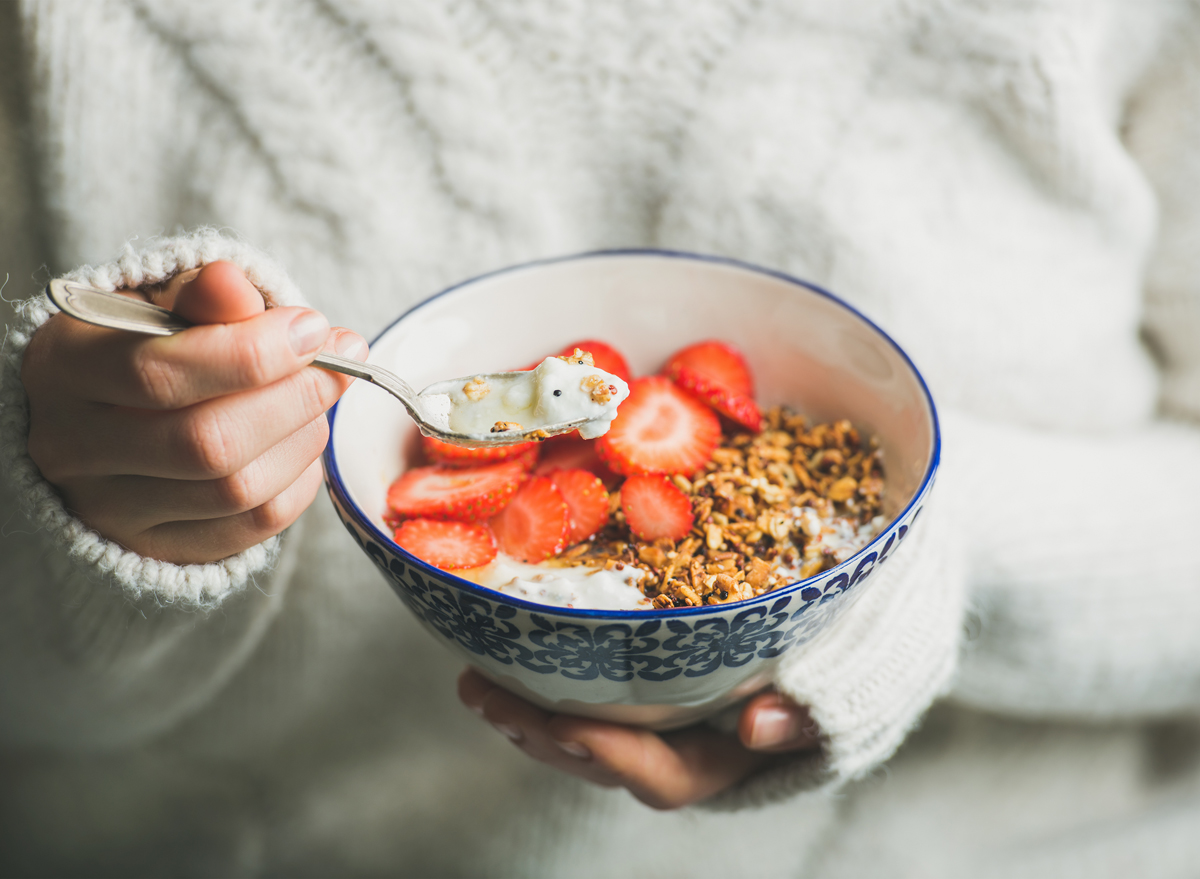
Do you often crave chocolate, cookies, or candy? Do you love mochas or pumpkin spice lattes from your favorite coffee shop? If so, you're not alone.
Humans have an innate desire for sweets. We are born that way. Simple carbs (aka sugars) light up areas of the brain that release endorphins, or feel-good hormones. In addition, sweets are associated with treats or rewards like a birthday cake or desserts enjoyed on special occasions, like Christmas cookies or Thanksgiving pie. As a result, most people enjoy sweets and often crave them.
The problem is that we eat way too much added sugar. According to national food consumption data, the average adult currently eats about 17 teaspoons (270 calories or 68 grams) of added sugar every day! The American Heart Association recommends that women limit added sugar to 6 teaspoons (100 calories or 25 g) per day for women and 9 teaspoons (150 calories or 36 grams) for men. Reams of research show that excess added sugar can up one's risk for obesity, type 2 diabetes, cardiovascular disease, systemic inflammation, and many other conditions. One study reported in Nutrition Research and Practice reported that individuals who had higher added sugar intake were also more likely to have an increased risk of negative health outcomes and death compared to those who had the least added sugar in their diet. The study also found that naturally sweet foods, like fruit, did not increase health risks.
Here are 10 foods I frequently turn to when I get a craving for something sweet.
Dark chocolate-covered fruit

Chocolate-covered strawberries are a great way to get a little bit of sweetness because they are a good source of fiber and other bioactive compounds that help slow the release of carbohydrates into the bloodstream. What's more, dark chocolate is known to pack in flavonoids that help improve heart health. Strawberries may come to mind as a great fruit to dip in chocolate, but other healthful choices include sliced kiwis, oranges, and bananas.
Dried fruit
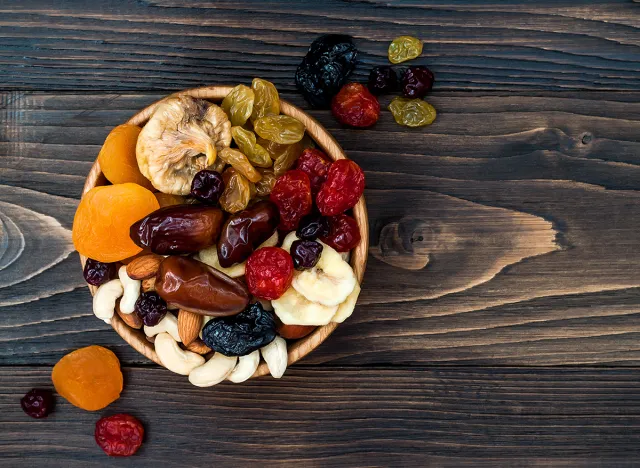
Dried fruit is a great option to enjoy instead of grabbing a bag of gummies or other sugary treats with no essential nutrients. Dried fruit provides all the beneficial vitamins, minerals, fiber, and phytonutrients of fresh, but in a more intensely sweet package. Keep servings of dried fruit in check as calories can add up quickly. For example, five to six dried apricots have about 110 calories while three fresh apricots have around 60 calories.
Sugar free gum

Often a stick of sugar-free gum may be just what you need to kick a craving for sweets to the curb. That's because when we are anxious or stressed, cravings for sweets can increase. More than 80 years of research about chewing gum shows that gum can help reduce stress, improve mood, and increase attention span. If you need to see this in action, just watch the Seattle Seahawk's head coach Pete Carrol chew his Bubble Yum on the sidelines.
Dark chocolate
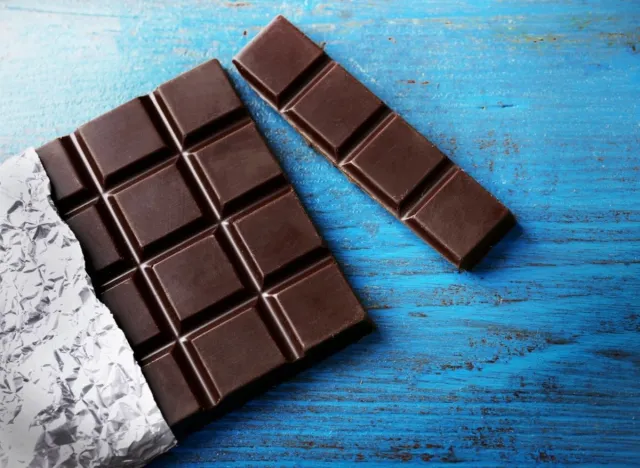
Dark chocolate is a wonderful way to combat your cravings for something sweet and chocolatey at the same time. Dark chocolate has higher levels of cacao, which packs in beneficial antioxidants that help lower blood pressure, improve cholesterol levels, and reduce overall risk for heart disease. Look for dark chocolate that is at least 70% cacao and enjoy it in moderation to keep your calories in check.
Quick breads and muffins (i.e., banana, pumpkin, sweetpotato or zucchini)
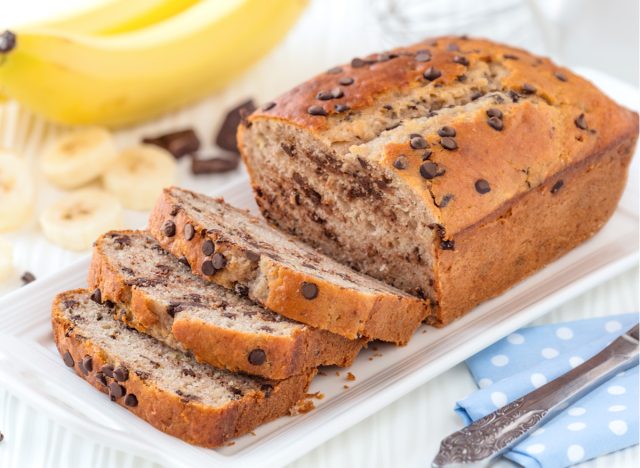
Quick breads can be a great alternative to traditional sugar-rich baked goods that pack in calories, fat, and sugar, and relatively no other beneficial nutrients. By using the sweetness of fruit or veggies in the bread or muffin, less added sugar is used to make quick breads. You can also bake your own and use a stevia-sugar blend, so you reduce added sugars even further. The produce in the recipe adds fiber, essential nutrients, and other bioactive compounds that help temper the impact of quick-release simple carbs.
Fresh fruit
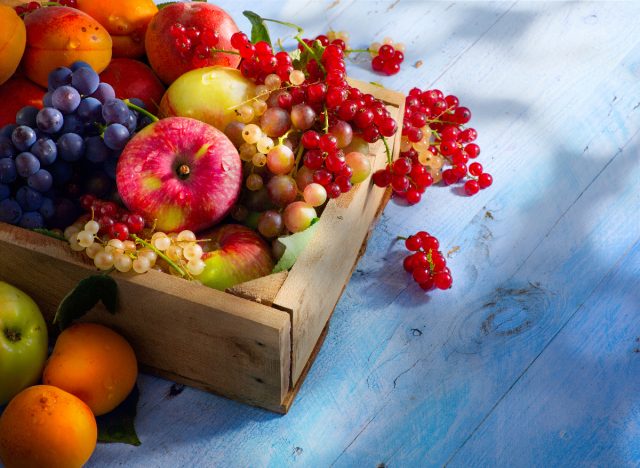
Fruit is naturally sweet and can crush your cravings for sugar. The natural sugar in berries, apples, citrus, grapes, and other fruits will satisfy your craving for sweets. The fiber in fruit will delay the digestion and absorption of carbs so it increases your satisfaction to conquer your cravings.
No added sugar flavored yogurt
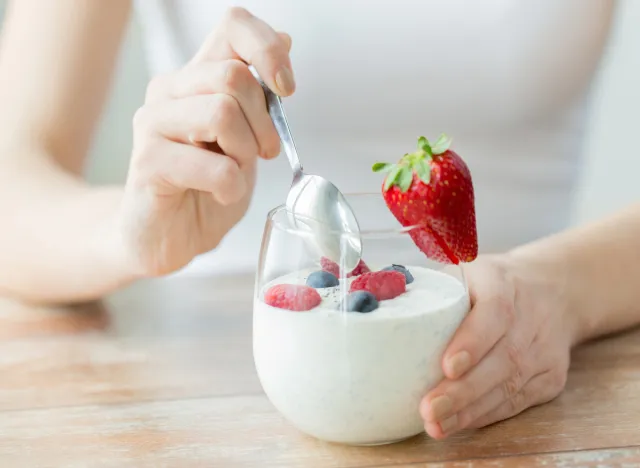
Flavored yogurt can be a great way to satisfy your cravings for something sweet while getting high-quality protein, calcium, and many other nutrients in your diet. Protein helps slow digestion so it will help temper the release of sugar into your bloodstream. The healthiest option tends to be Greek yogurt with no added sugar or those sweetened with zero-calorie sugar substitutes.
Trail mix
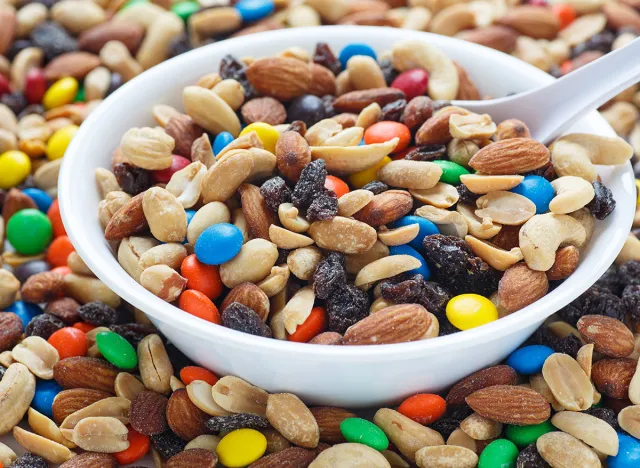
Trail mix is a great way to get over a craving for something sweet. The dried fruit and chocolate in the blends provide enough sweetness while the nuts provide fiber and protein. Trail mix is high in calories and total fat, with about 150 calories per ¼ cup serving, so monitor how much you eat.
Cottage cheese with fruit
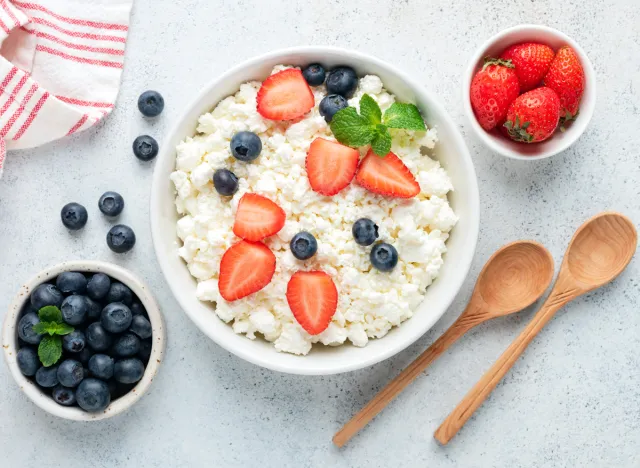
There are several brands of cottage cheese with fruit, which adds a touch of sweetness with the added benefits of the nutritional benefits of cottage cheese. Cottage cheese is naturally rich in protein and low in added sugar. The single-serve portions are generally less than 150 calories and are sweet enough to tamp down your sweet tooth.
Protein-rich energy bar
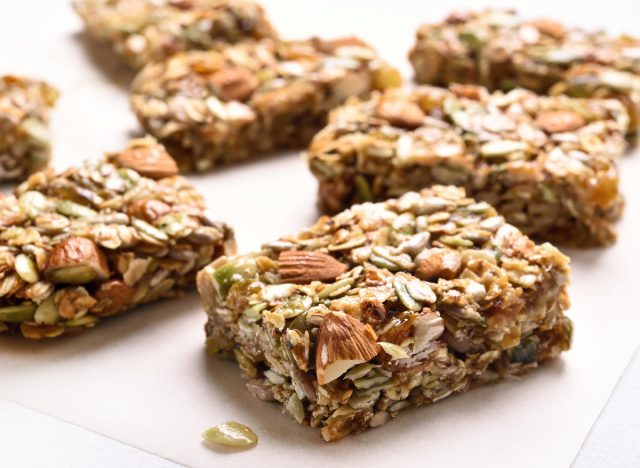
A protein-rich energy or snack bar is one of my favorite ways to make me feel like I'm enjoying a sweet treat. I look for bars that have less than 8 grams of added sugar (2 teaspoons) and no more than 200 calories. There are hundreds of options from which to choose.
- Source: Dietary Guidelines: Cut Down on Added Sugars
- Source: Added sugars. (2023, May 10). www.heart.org. https://www.heart.org/en/healthy-living/healthy-eating/eat-smart/sugar/added-sugars
- Source: Paglia L. The sweet danger of added sugars. Eur J Paediatr Dent. 2019 Jun;20(2):89. doi: 10.23804/ejpd.2019.20.02.01. PMID: 31246081.
- Source: Song S, Shim JE, Song Y. Association of added sugar intake with all-cause and cardiovascular disease mortality: a systematic review of cohort studies. Nutr Res Pract. 2022 May;16(Suppl 1):S21-S36. doi: 10.4162/nrp.2022.16.S1.S21. Epub 2022 Feb 17. PMID: 35651837; PMCID: PMC9127522.
- Source: Smith A. Effects of chewing gum on cognitive function, mood and physiology in stressed and non-stressed volunteers. Nutr Neurosci. 2010 Feb;13(1):7-16. doi: 10.1179/147683010X12611460763526. PMID: 20132649.



